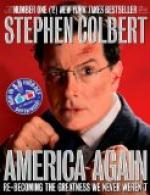That suggesting an appropriate topic of conversation to Dan, for a little while we spoke of the Sabbath-keeping of our Scottish forefathers; as we spoke, idly watching the circling, wheeling Bromli kites, that seemed then as at all times, an essential part of the sunshine. To the bush-folk of the Never-Never, sunshine without Bromli kites would be as a summer’s day without the sun. All day and every day they hover throughout it, as they search and wait and watch for carrion, throwing dim, gliding shadows as they wheel and circle, or flashing sunshine from brown wings by quick, sudden swoops, hovering and swooping throughout the sunshine, or rising to melt into blue depths of the heavens, where other arching, floating specks tell of myriads there, ready to swoop, and fall and gather and feast wherever their lowest ranks drop earthwards with the crows.
Lazily we watched the floating movement, and as we watched, conversation became spasmodic—not worth the energy required to sustain it—until gradually we slipped into one of those sociable silences of the bushfolk—silences that draw away all active thought from the mind, leaving it a sensitive plate ready to absorb impressions and thoughts as they flit about it, silences where every one is so in harmony with his comrades and surroundings that the breaking of them rarely jars—spoken words so often defining the half-absorbed thoughts.
Dimly conscious of each other, of the grazing cattle the Bromli kites, the sweet scents and rustling sounds of the bush, of each other’s thoughts and that the last spoken thought among us had been Sabbath-keeping, we rested, idly, not thinking, until Dan’s voice crept into the silence.
“Never was much at religion meself,” he said, lazily altering his position, “but Mrs. Bob was the one to make you see things right off.” Lazily and without stirring we gave our awakened attention, and after a quiet pause the droning Scotch voice went on, too contented to raise itself above a drone: “Can’t exactly remember how she put it; seemed as though you’d only got to hoe your own row the best you can, and lend others a hand with theirs, and just let God see after the rest.”
Quietly, as the droning voice died away, we slipped back into our silence, lazily dreaming on, with Dan’s words lingering in our minds, until, in a little while, it seemed as though the dancing tree-tops, the circling Bromli kites, every rustling sound and movement about us, had taken them up and were shouting them to the echo. “How much you will be able to teach the poor, dark souls of the stockmen,” a well-meaning Southerner had said, with self-righteous arrogance; and in the brilliant glory of that bush Sabbath, one of the “poor, dark souls” had set the air vibrating with the grandest, noblest principles of Christianity summed up into one brief sentence resonant with its ringing commands: Hoe your own row the best you can. Lend others a hand with theirs. Let God see to the rest.




